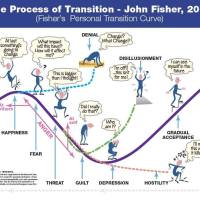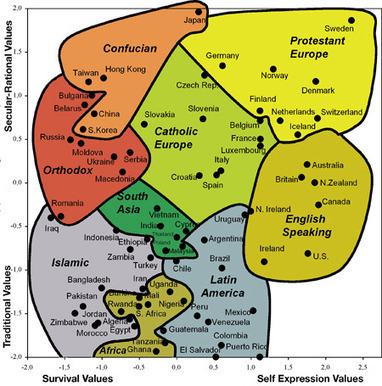 How many times do you say “good job” or “I am proud of you” to your kids ? Do you give them money or buy them candies if they behave well or get good marks at school?
How many times do you say “good job” or “I am proud of you” to your kids ? Do you give them money or buy them candies if they behave well or get good marks at school?
What about your employees ? Do you give them extra money if they exceed their goals ?
The way you encourage and praise kids and adults is very cultural. For example in France, Japan or China praise is rare. Those cultures think that too much praise will spoil the children and prevent them from making efforts to get results. On the other hand, in America, it is almost considered as a crime if you don’t praise your kids for anything and everything they do. Most teachers and parents think that praising children is good for their self-esteem.
Our basic strategy for raising children, teaching students, and managing workers can be summarized in six words: Do this and you’ll get that. We dangle goodies (from candy bars to sales commissions) in front of people in much the same way that we train the family pet.
In the famous book, “Punished by Rewards”, Alfie Kohn shows that while manipulating people with incentives seems to work in the short run, it is a strategy that ultimately fails and even does lasting harm.
On a short-term basis, praise do increase the motivation in children and adults for boosting the performance at school or at work. However many evidence-based studies show that in the long run the motivation is actually decreasing. Those studies also demonstrated that both in children and adults praise kills risk-taking attitude and creativity.
In one experiment, two groups of children in 5th grade were asked to make an easy puzzle for everyone. In one group the children have been told that they were very intelligent and the other group that they worked hard. Then the same groups of students got the option to choose between doing another easy puzzle or a more difficult and challenging one. In the group who was told they were very intelligent, the majority selected the easy one while in the other group more children choose to take the challenge of making a more difficult task.
Kids praised for being smart want to keep looking good, therefore they avoid taking risks or more challenges due to fear of failure preventing them to learn new things. They have also a tendency to be competitive and benchmarking themselves with other kids. On the contrary, the children who have been told they worked hard learned that by working harder they can learn more and preferred the challenging task.
In this article “effect of praise” there are good tips on how to praise kids the right way.
In business, financial incentives like sales commissions and bonuses are the most common ways used to motivate people and reward performance despite the fact that most economic and behavioral scientific studies demonstrate that it doesn’t work. Companies like Google, Apple or Zappos use different approaches based on intrinsic motivation rather than external rewards and get better results on how workers are engaged and creative.
The If-Then-Rewards model destroys creativity
In this video: TED talk, Dan Pink demonstrates that financial incentives don’t work on productivity and motivation for most people working in jobs that require more than just following simple tasks. What works on a long run is employee’s autonomy, engagement, mastery and purpose
Dan Ariely and co-workers also demonstrated in experiments published in the “Large Stakes and Big Mistakes“ article, that big financial incentive backfire:
Many institutions provide very large incentives for tasks that require creativity, problem solving, and memory. Our results challenge the assumption that increases in motivation would necessarily lead to improvements in performance. Across multiple tasks (with one important exception), higher monetary incentives led to worse performance. the largest the financial incentives the poorest the performance were .
In thisvideo, Freaknomics‘s author Steve Levitt found also lot of evidence that giving financial incentive don’t work.
In conclusion, While most people think intuitively that too much punishment may not be an effective way to improve performance on cognitive tasks such as learning or being creative, the negative impact of over-praising or offering large incentives is ignored by most parents, teachers and companies. Anything that stimulates intrinsic motivation such as autonomy and independence, overcoming personal challenges or problem solving is the way both schools and companies should base their incentive programs.
Related links: http://www.parentingscience.com/theory-of-intelligence.html http://www.rotman.utoronto.ca/newthinking/largestakes.pdf






Thank you for highlighting this, and for your balance of specific studies with wider perspective.
My own concern is with university-level education, and by that time it may be too late to undo a culture engrained by years at home and at school:
But you make very clear a factor which university academics would do well to understand.
Pingback: Positive feedback harmful (2) « Assessment in UK HE: a view from the teapot
We think parents should expand the amount of time (he/she works on something) before he/she earns a reward.
We also think using time instead of money or treats would bring better results for the child.
Thank you-
Carl C, Leo R.